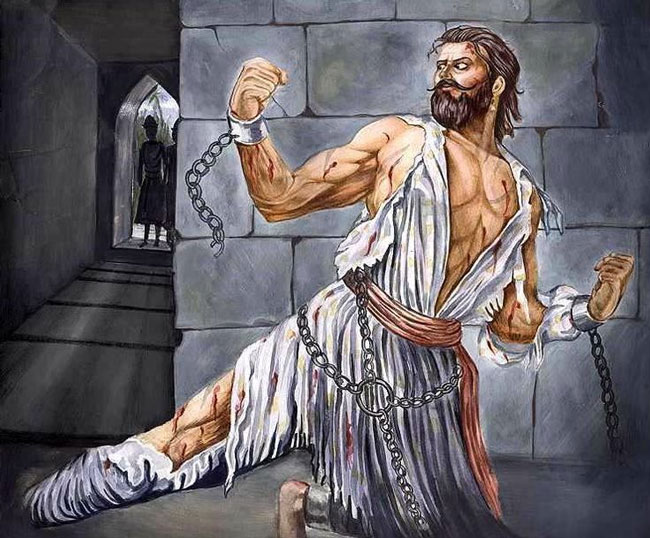Today, on March 11, 2025, we remember the death anniversary of the second Chhatrapati of Hindavi Swarajya, Sambhaji Maharaj. He is revered as a symbol of unwavering courage and devotion to Dharma, who instilled fear in the heart of Mughal emperor Aurangzeb. Sambhaji Maharaj, affectionately known as ‘Chhawa’ (meaning “Lion’s cub”), was a warrior who endured inhuman torture for 40 days yet remained steadfast in his commitment to his religion and Swarajya. His bravery continues to be a source of inspiration for every Indian.
The Foundation of Courage
Sambhaji Maharaj was born on May 14, 1657, at the Purandar Fort. He was the eldest son of Chhatrapati Shivaji Maharaj, the founder of the Maratha Empire, and his first wife, Saibai. At the tender age of two and a half, he lost his mother, and his upbringing was under the care of his grandmother, Rajmata Jijabai. Under the guidance of Jijabai’s values and Shivaji Maharaj’s mentorship, Sambhaji grew up mastering both martial arts and scriptures. Even at a young age, he accompanied his father to Agra, where he witnessed the treachery of the Mughal court. This experience prepared him for the challenges ahead.
Sambhaji was multilingual, proficient in languages like Sanskrit and Marathi, and composed several works like Budhbhushan, Nayikabhed, and Satashatak, showcasing his literary talent. However, his true identity was that of a warrior who never gave up.
Protector of Swarajya: A Warrior Who Never Lost a Battle
After the death of Shivaji Maharaj in 1681, Sambhaji Maharaj ascended to the throne of the Maratha Empire. Historians note that during his short reign (1681-1689), he fought over 100 battles and never lost a single one. Whether against the Mughals or the Portuguese in Goa, Sambhaji proved his strength and strategy on every front. His tactics and valor stunned his enemies, and his attacks were so fierce that they struck fear into the Mughal forces.
40 Days of Torture: A Testament to Unyielding Resolve
Sambhaji Maharaj’s death came as a result of betrayal by one of his own relatives. In 1689, he was captured by the Mughal forces due to this treachery. Aurangzeb offered him freedom if he converted to Islam, but Sambhaji refused, stating that he would never compromise on his religion and Swarajya. This refusal led to a series of brutal tortures that lasted for 40 days.
He was subjected to unimaginable tortures—his eyes were gouged out, nails pulled off, and skin flayed—but through it all, he only uttered “Jai Bhavani” and “Har Har Mahadev.” Finally, on March 11, 1689, he was killed, and his dismembered body was thrown into the Bhima River. However, the Marathas recovered his remains and performed his last rites, a testament to his immense popularity and sacrifice. At the time of his death, he was only 31 years old.
Cause of Fear in the Mughal Empire
Sambhaji Maharaj’s valor and sacrifice were a powerful lesson for the Mughal Empire. Aurangzeb believed that by eliminating Sambhaji, the Maratha Empire would weaken, but the opposite happened. His martyrdom ignited a renewed spirit among the Marathas, and even after his death, the Maratha power grew stronger. Sambhaji Maharaj was not just a king, but a symbol of freedom, religion, and self-respect. His sacrifice laid the foundation for the eventual downfall of Aurangzeb’s empire.




